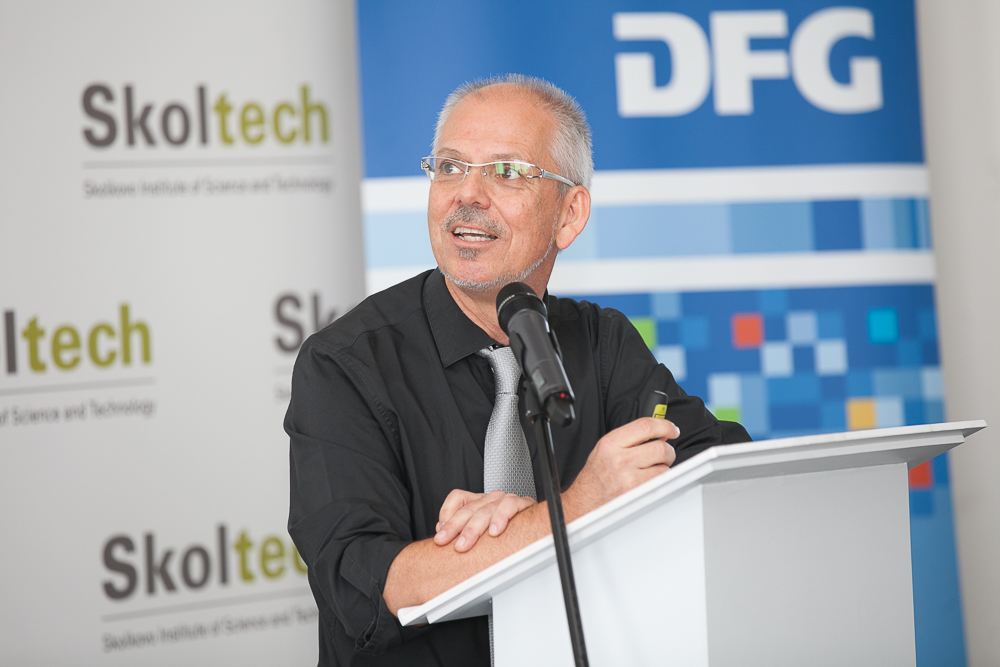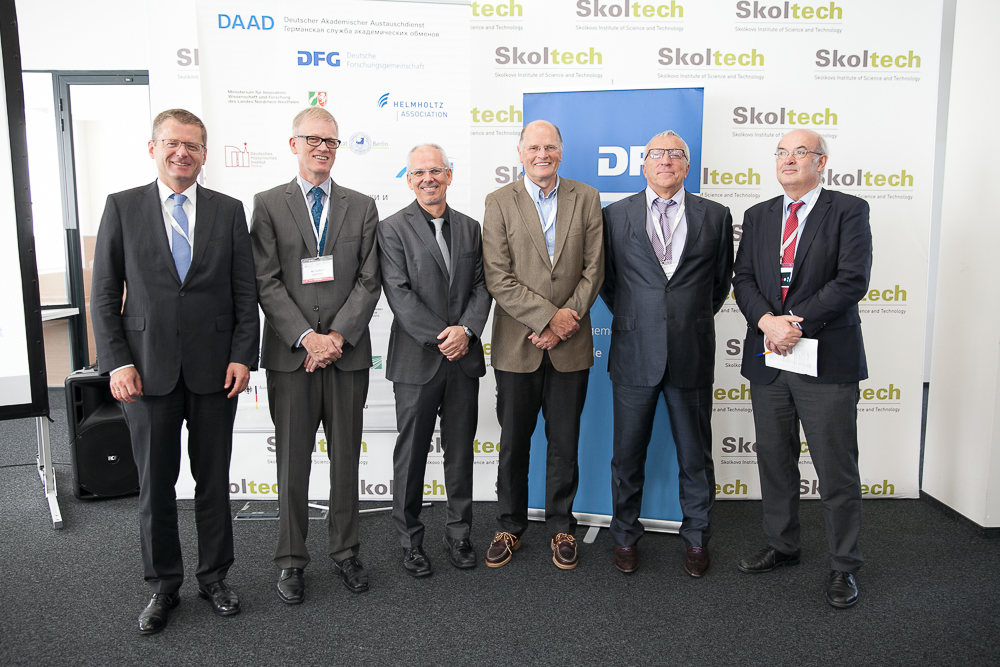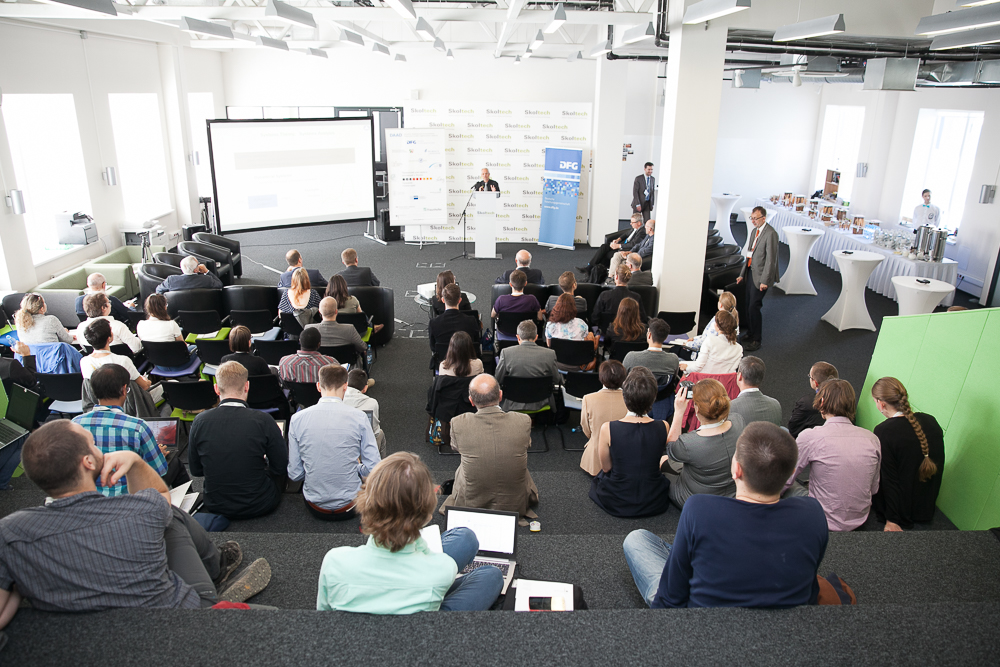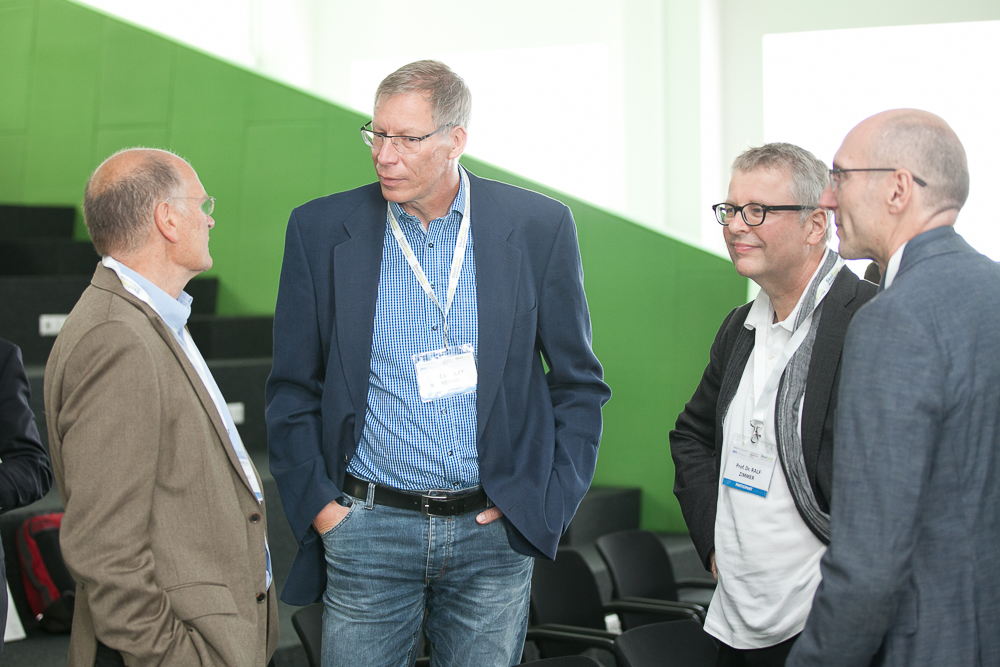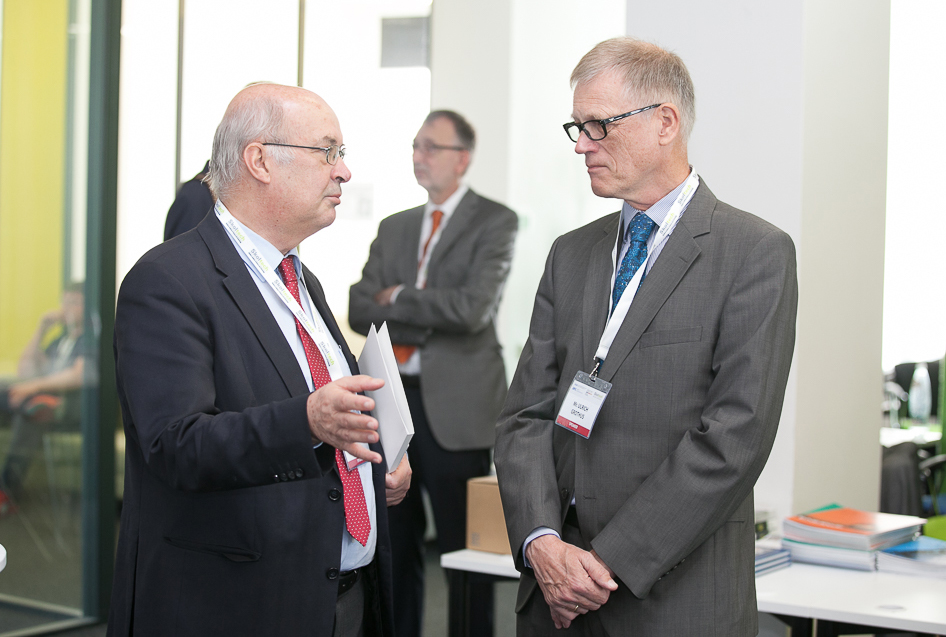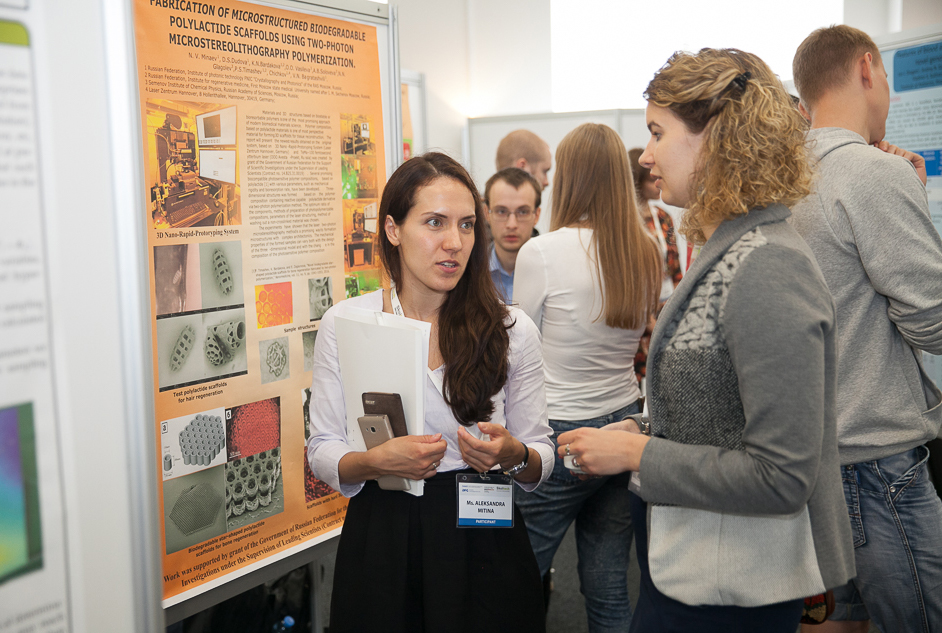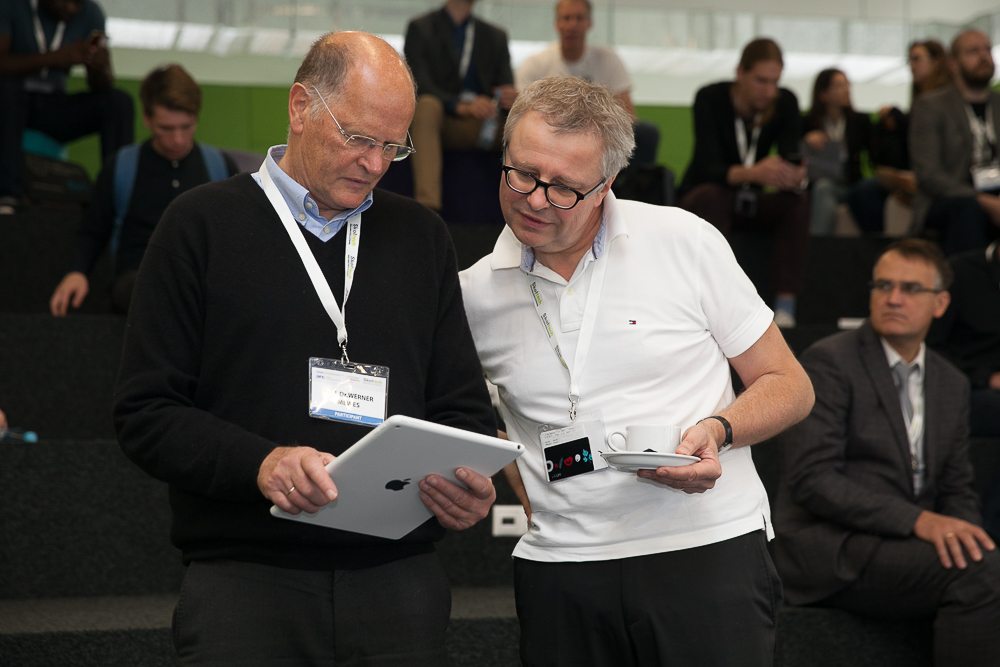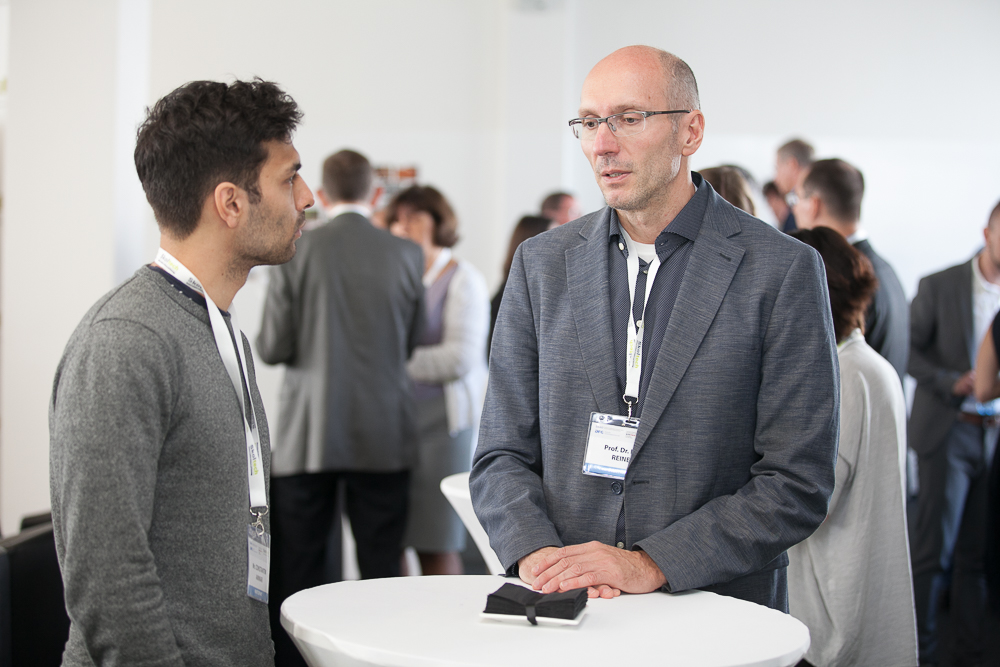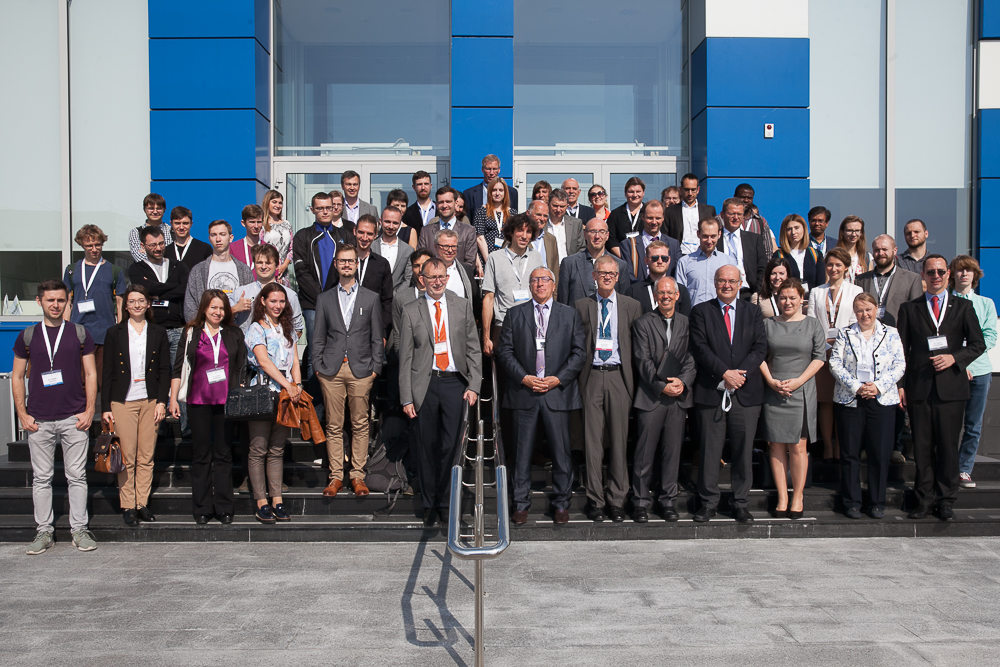DFG Attends German-Russian Week of the Young Researcher on Computational Biology and Biomedicine at Skoltech/Moscow
(26.09.17) In early September, the German Academic Exchange Service (DAAD) and the Deutsche Forschungsgemeinschaft (DFG, German Research Foundation) organised the seventh German-Russian Week of the Young Researcher under the umbrella of the German House for Research and Innovation (DWIH Moscow). Some 50 doctoral and postdoctoral researchers and professors came together at the Skolkovo Institute of Science and Technology in Moscow to present their research approaches in computational biology and biomedicine. The German attendees included DFG Vice-President Frank Allgöwer (Stuttgart) and several DFG-funded professors, such as Olaf Wolkenhauer (Rostock) and Knut Reinert (Berlin). The spokespersons for the German-Russian Research Training Group 1563 (Regulation and Evolution of Cellular Systems, 2009-2013), Dmitriy Frishman (TU Munich), Ralf Zimmer (LMU Munich) and Mikhail Gelfand (Lomonosov University, Skoltech), as well as Werner Mewes (participating researcher in IRTG 1563, TU Munich) were also present, bringing with them a new generation of doctoral researchers.
DFG Vice-President Frank Allgöwer opens Week of the Young Researcher 2017 at the Skolkovo Institute for Science and Technology
© DWIH
At the start of the week, participants were formally welcomed by Alexander Kuleshov, President of the Skolkovo Institute of Science and Technology (Skoltech), as well as Skoltech provost and German medical researcher Rupert Gerzer. They were welcomed on behalf of the German hosts by Thomas Graf, head of the business and research department of the Germany embassy in Moscow, Ulrich Grothus, the Deputy Secretary General of the DAAD, and DFG Vice-President Frank Allgöwer.
DFG Vice-President Frank Allgöwer opens Week of the Young Researcher 2017 at the Skolkovo Institute for Science and Technology
© DWIH
In his opening address, DFG Leibniz Prize recipient and systems biologist Frank Allgöwer then led into the scientific part of the Week of the Young Researcher, this year dedicated to the relatively young and interdisciplinary research area of Computational Biology and Biomedicine. Experts in computational biology, mathematics, molecular and systems biology and experimental engineering discussed theoretical and philosophical aspects of life science research at the highest level. Biological data analysis now supports many areas of life science research by making it possible to manage and evaluate huge volumes of data, providing astonishing results that give us a better understanding of complex biological processes. A wide spectrum of topics were covered in specialist lectures, talks and poster presentations, from the development of computer algorithms to the biological interpretation of medical data.
The German attendees, in particular, who travelled from Berlin, Munich, Rostock and Stuttgart this year, took advantage of the opportunity for in-depth discussion of possibilities in German-Russian cooperation. In addition to the specialist lectures, the research organisations in DWIH Moscow presented their funding programmes with Russia as part of a Science Café, which provided an opportunity for direct dialogue with the DFG, its Russian partner organisations, the DAAD, the Helmholtz Association, FU Berlin and academic publishing house Springer. Representatives of Bayer Moscow, Russian start-up company Biosoft, and the co-founder and chair of the supervisory board of Biomax Informatics AG, Werner Mewes, gave best practice reports, sharing their experiences of the difficult but rewarding path from basic research to the development of market-ready innovations and entrepreneurship.
DFG Vice-President Frank Allgöwer opens Week of the Young Researcher 2017 at the Skolkovo Institute for Science and Technology
© DWIH
This approach of developing commercially viable innovations was vital to the establishment of Skoltech, which emerged in 2011 from the Skolkovo innovation centre, known as Russia’s Silicon Valley, with financial support and advice from the Massachusetts Institute of Technology (MIT). Skoltech is an ambitious institution, a private research university which offers postgraduate and PhD programmes in which the linking of basic and applied research and the development of innovative solutions is actively encouraged. It concentrates on areas such as IT, biomedicine, energy and space research. This approach, combined with its international orientation, makes Skoltech a novel player in the Russian research landscape. Time will tell how great the university’s impact will be on Russian research and how much innovation will come out of this institution.
The basic purpose of the Week of the Young Researcher conferences is to encourage wider networking and stronger collaboration between early career researchers. They incorporate interdisciplinary and forward-looking themes reflecting key current issues or potential in bilateral cooperation between Germany and Russia. The Weeks of the Young Researcher were set up in 2011 as an initiative of the DAAD and DFG as part of the German-Russian Year of Science, Education and Innovation. Held once a year at changing locations in Russia, they aim to address current issues through international cooperation. They are organised together with the country’s leading universities and research centres (Kazan 2011), (Yekaterinburg 2012), (Novosibirsk 2013), (St. Petersburg 2014), (Moscow 2015, 2016).
Further Information
- The Seventh German-Russian Week of the Young Researcher: Announcemen(Download)
- The Seventh German-Russian Week of the Young Researcher: Programm(Download)
- The Seventh German-Russian Week of the Young Researcher: List of Participant(Download)
- Skolkovo Institute of Science and Technology (Skoltech(externer Link)
- Germany and Russia’s bright young scientific minds collide at Skoltec(externer Link)
- Germany and Russia’s bright young scientific minds collide at Skoltec(externer Link)
- Представители РНФ приняли участие в российско-немецкой Неделе молодого учёног(externer Link)
